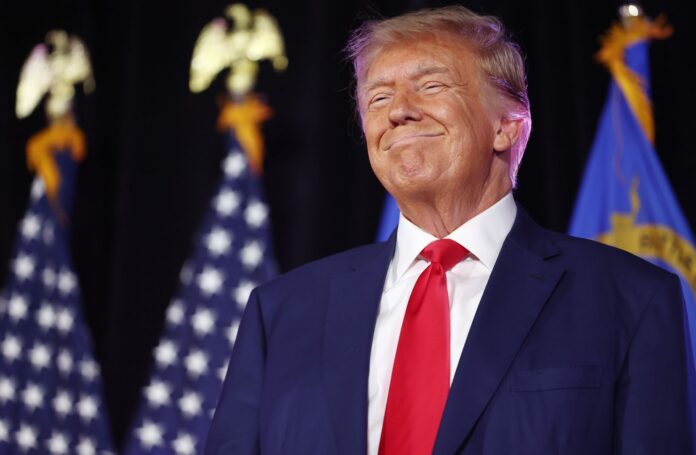A CNN senior legal analyst Elie Honig has listed six ways New York Judge and prosecutors got ex-President Donald Trump convicted by contorting the law in an unprecedented manner.
Here are the facts, according to Honig.
- The judge donated money (a small amount, $35, but in clear violation of a rule prohibiting New York judges from making political donations of any kind) to a pro-Biden, anti-Trump political operation, including funds that the judge intended to “resist the Republican Party and the radical right legacy of Donald Trump.” Would people have been okay with the judge taking the case if he had donated a couple of dollars to “Reelect Donald Trump, MAGA Forever”? Absolutely not.
- District Attorney Alvin Bragg ran for office in an overwhelmingly Democratic county boasting of his prowess in hunting down Trump. He bizarrely (and falsely) bragged during the election campaign: “It’s a fact that I have sued Trump over 100 times.” (Disclosure: Both Bragg and Trump’s lead lawyer, Todd Blanche, are friends and former colleagues of mine in the Southern District of New York.)
- Most importantly, the DA’s charges against Trump transcend the outer limits of the law and due process. That’s not in the jury. That depends on the prosecutors who decided to bring the case and the judge who let it play out the way it did.
- When meaningful search parameters are imposed, the truth emerges: The charges against Trump are obscure and almost entirely unprecedented. In fact, no state prosecutor – not in New York, not in Wyoming, not anywhere else – has ever accused federal election laws of being a direct or predicate state crime, against anyone and for nothing. None. Ever. Even setting aside the specifics of election law, Manhattan’s own district attorney almost never brings a case in which falsifying business records is the only charge.
- On their own, the forgery charges would have been mere misdemeanors under New York law, which posed two problems for the district attorney. First of all, no one cares about a minor crime, and it would be ridiculous to file the first charge against a former president for a minor crime that falls under the same technical criminal classification as stealing a Snapple and a bag of Cheetos from a bodega. Second, the statute of limitations on a misdemeanor (two years) has likely long expired for Trump’s conduct, dating back to 2016 and 2017.
- To inflate the charges to the lowest level felony (Class E, on a scale of Class A to E) – and to shock them back to life within the longest felony statute of limitations – the district attorney alleged that the falsification of business records was committed “with the intent to commit another crime.” In this case, according to prosecutors, the “other crime” is a violation of New York state election law, which in turn incorporates three different “illegal means”: federal campaign crimes, tax crimes and falsification of even more documents. Inexcusably, the district attorney refused to specify what those illegal means actually were – and the judge refused to force them to pay – until just before closing arguments. So much for the constitutional obligation to notify the accused of the accusations against him before the trial. (This, friends, is what accusations are for). In these key respects, the charges against Trump are not just unusual. They are custom-made, apparently individually crafted for the former president and no one else.
- Advertisement -
- Advertisement -













